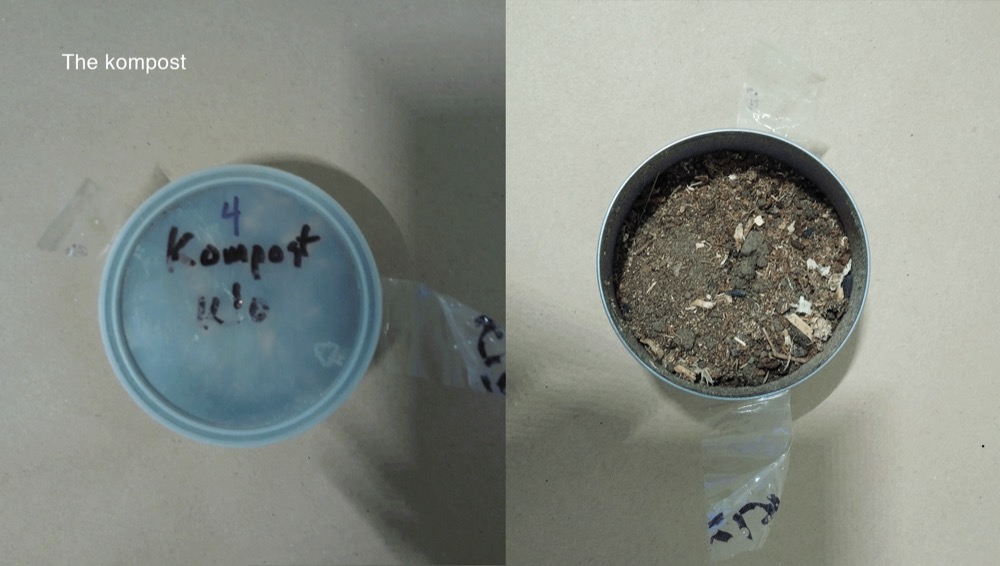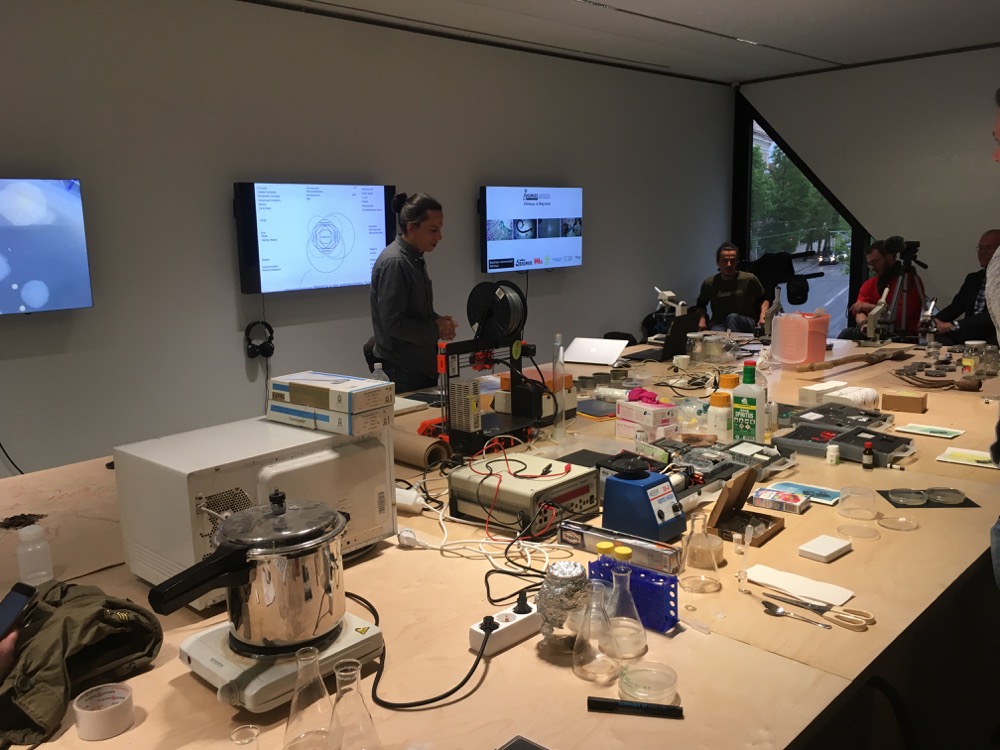Mindaugas Gapševičius in collaboration with Juan Pablo Diaz, Julian Chollet, and participants
Workshop, MO museum, Vilnius 2019 05 04-06


The DIWO (Do it With Others) workshop at the MO Museum provided tools for experimentation around SCOBY, Shit, and Humus. The workshop was conceptualized around the tools in the toolkit “My Collaboration with Bacteria for Paper Production,” developed by Mindaugas Gapševičius.
The workshop resembled an event, with people gathering for a collaborative talking, thinking, and making. Having up to twelve participants, the workshop referenced the performative artworks of the 60s including work by Georg Maciunas and Joseph Beuys, social events of the 90s including the ones by Rirkrit Tiravanija and Liam Gillick, and workshops of the last decade including ones by Martin Howse and Marc Dusseiller.
During the time allocated for the experimentation, participants isolated bacteria, did microscopy, analyzed soil samples, discussed spontaneous ideas, and worked on documentation, time-lapse photography, maps, and manuals. Three interesting results came up. First, while mapping interactions of microorganisms around soil, Juan proposed that all earlier versions of our attempt to map the soil represent an anthropocentric vision of interactions and shouldn’t be continued if we propose a flat interaction between different actors in the system. Another unexpected result came while inspecting the grown microorganisms on a petri dish with LB medium and a sample from human compost, brought by Juan from Berlin for comparison reasons. While trying to distinguish various colonies of microorganisms, the sample has included a flower-like bacterial colony, presumed by Julian as being Paenibacillus vortex. This colony of bacteria was used by Nurit Bar-Shai in her “Objectivity [tentative]: Soundscapes” project in 2012. Finally, one of the most active participants of the workshop Akvilė developed an over-night time-lapse animation featuring the grown Paenibacillus vortex bacterial colony from the compost sample.
This workshop was part of “Self-repair Lab,” an art installation and a collaborative framework for biological, chemical, and geological experimentation. The project was kindly supported by Nordic Culture Point and Council for Culture of Lithuania.
Related Media:
